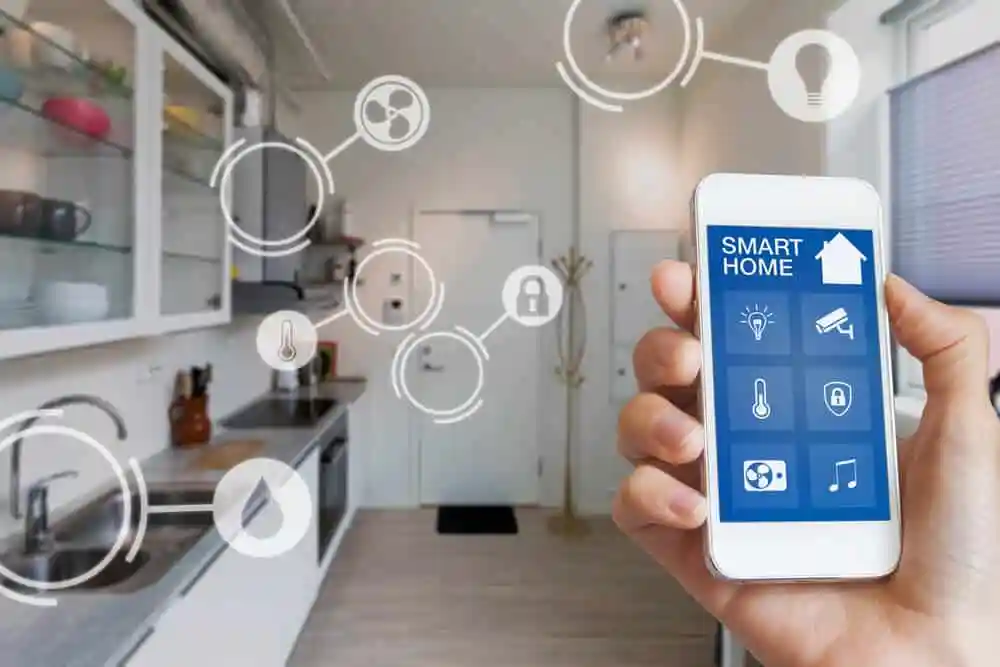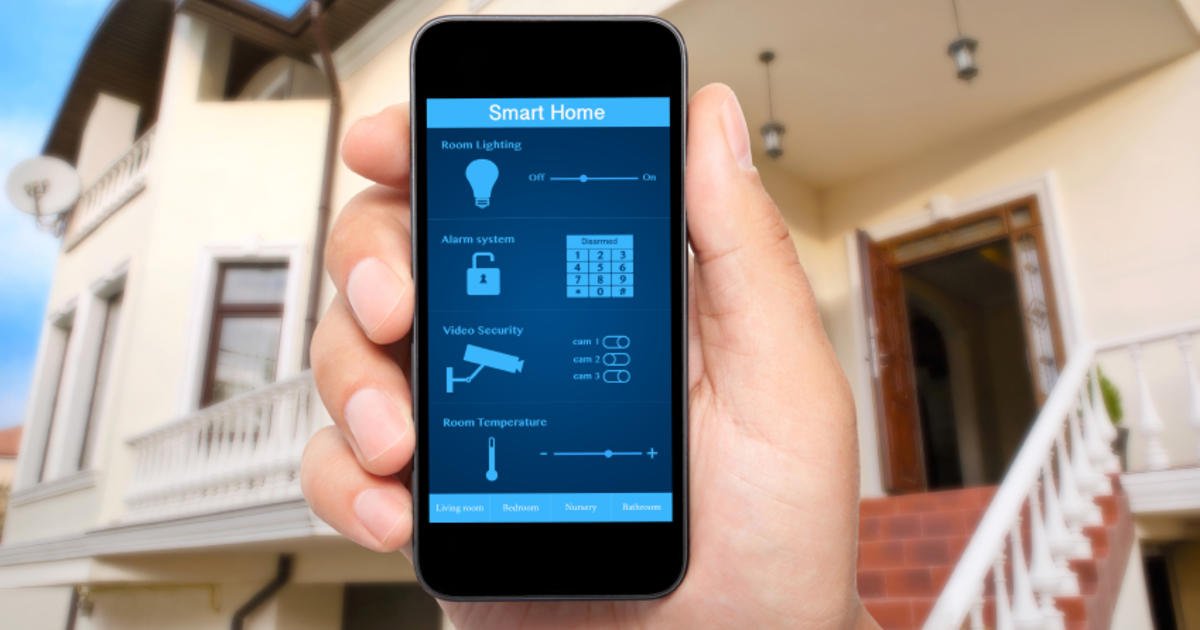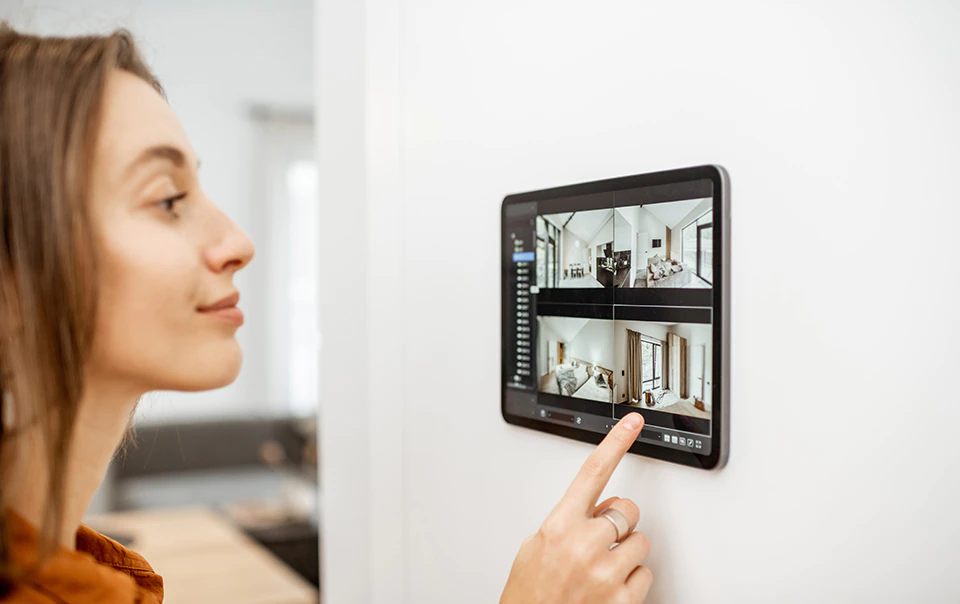In a digital age dominated by smart technology, a recent survey conducted by CraftJack sheds light on the rising paranoia among Americans regarding the security of their smart devices at home. The study, based on responses from 807 participants, reveals that one-third of Americans harbor worries about potential hacking of their smart gadgets.
Top Culprits Raising Concerns:
Among the myriad of smart devices, the study highlights specific gadgets triggering apprehension. The Amazon Echo, security cameras, Google Nest thermostats, smart doorbells, and smart TVs emerge as the top contenders causing unease among consumers. Privacy concerns loom large, with four out of five of these devices ranking among the top five gadgets that consumers are hesitant to allow into their homes.
 Reasons Behind the Worries:
Reasons Behind the Worries:
Experts weigh in on the validity of these concerns, citing instances of hacking into devices like nanny cams and laptop cameras. Rob Enderle, President of the Enderle Group, emphasizes the need for robust security measures, given the escalating desire and tools for hacking into smart home devices. Mark N. Vena, President and Principal Analyst at SmartTech Research, points to the potential risks of privacy invasion, data theft, and even physical harm arising from the hacking of smart devices.
The Mobile App Conundrum:
The risks extend beyond the devices themselves to the corresponding mobile applications that control them. Kern Smith, VP for Americas Pre-Sales at Zimperium, underscores the significance of building security and privacy into these mobile apps. As the primary interface between users and their smart devices, these apps serve as the key to a user’s digital kingdom. Compromising them could amplify the challenges posed by hacked smart devices.
The Eavesdropping Dilemma:
CraftJack’s research delves into the unsettling feeling of being spied on by smart devices, with 76% of respondents believing their gadgets are listening to them, and 61% convinced of constant eavesdropping. Concerns escalate with targeted advertisements on phones, leading 62% to report receiving ads related to conversations near their smart devices.
Surveillance Suspicions:
In a technological landscape rife with smart devices, a captivating revelation from CraftJack’s recent survey sheds light on the nuanced sentiments surrounding potential government surveillance through these ubiquitous gadgets. The study, featuring responses from 807 participants, unveils a surprising 15% of respondents expressing skepticism about the U.S. government’s role in monitoring activities through smart devices.
 Shift in Public Perception: A decade ago, the notion of government surveillance through personal smart devices might have been deemed a conspiracy theory. However, the survey exposes a notable shift in public perception, with a considerable segment now entertaining doubts about the government’s involvement in monitoring their smart gadgets.
Shift in Public Perception: A decade ago, the notion of government surveillance through personal smart devices might have been deemed a conspiracy theory. However, the survey exposes a notable shift in public perception, with a considerable segment now entertaining doubts about the government’s involvement in monitoring their smart gadgets.
Unpacking the Concerns: The skepticism surrounding government surveillance raises multifaceted concerns among respondents. Privacy, a fundamental aspect of personal freedom, becomes a focal point, as individuals grapple with the idea of potential intrusion into their daily lives through the very devices designed to simplify and enhance convenience.
Privacy Invasion or National Security?: As individuals express reservations, a delicate balance emerges between the need for privacy and the broader concept of national security. While users value their personal space, they are also cognizant of the government’s responsibility to safeguard the nation. This dichotomy prompts a nuanced exploration of where the line should be drawn in the quest for security.
The Evolution of Trust: The survey findings underscore the evolving dynamics of trust between citizens and the government in an increasingly connected world. The advent of smart devices has ushered in unparalleled convenience but simultaneously fueled concerns about the potential misuse of data and surveillance capabilities.
Government Transparency and Accountability: With skepticism on the rise, calls for government transparency and accountability gain prominence. Respondents seek reassurance that any monitoring activities align with legal frameworks and are conducted with a clear objective related to national security rather than unwarranted intrusion into private affairs.
Implications for Future Policies: The survey results imply potential ramifications for future policies governing the use of surveillance technologies. As public sentiment becomes more pronounced, policymakers may face the challenge of striking a delicate balance between ensuring the safety of the nation and respecting the privacy rights of individuals.
Educational Initiatives on Government Surveillance: In light of these suspicions, there is a growing need for educational initiatives to inform the public about the legal frameworks governing government surveillance. Crafting clear communication channels can help demystify the role of smart devices in national security, fostering a more informed and empowered citizenry.
Government-Citizen Dialogue: The survey findings also emphasize the importance of fostering a constructive dialogue between the government and citizens. Open discussions on the purpose, scope, and limitations of surveillance activities can contribute to building a mutual understanding that addresses concerns while acknowledging the imperative of national security measures.
Security Education Deficiency:
Despite the rising concerns, the study finds that 75% of Americans lack knowledge on how to check if their smart devices have been hacked. CraftJack spokesperson Jenna LeMair emphasizes the need for proactive vendor involvement in educating consumers about securing their smart tech. Suggestions include security guides, online resources, and timely updates to enhance user awareness.
 Vendors’ Role in Cyber Hygiene:
Vendors’ Role in Cyber Hygiene:
Experts unanimously agree on the pivotal role vendors play in enhancing consumer awareness. John Gallagher, VP of Viakoo Labs, advocates for vendor-led training on maintaining a device’s cyber hygiene, especially during the initial setup. Vendors are seen as key educators, ensuring clear communication on software updates and potential risks to foster a safer digital ecosystem.
In conclusion
the study underscores the imperative for heightened security measures, robust education strategies, and proactive vendor involvement to allay the fears and challenges associated with the smart home landscape.
Read more: